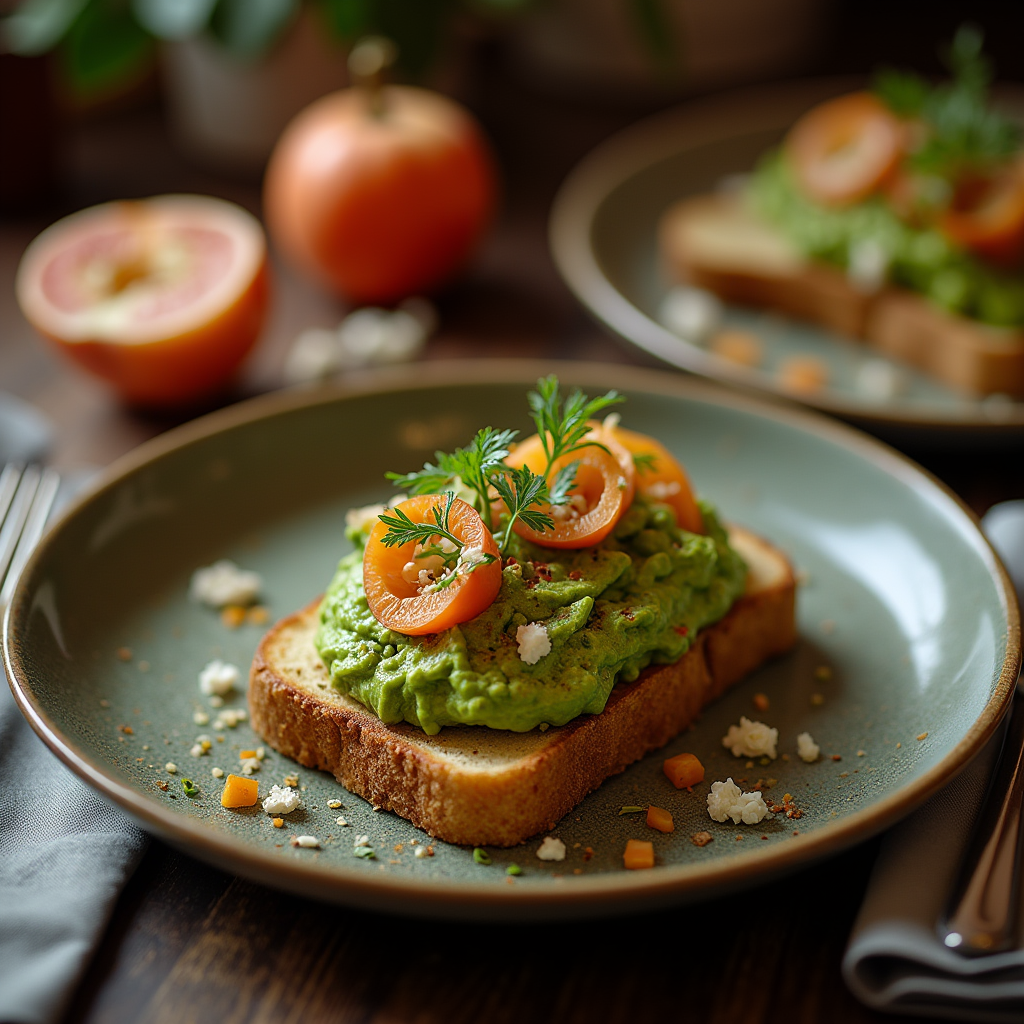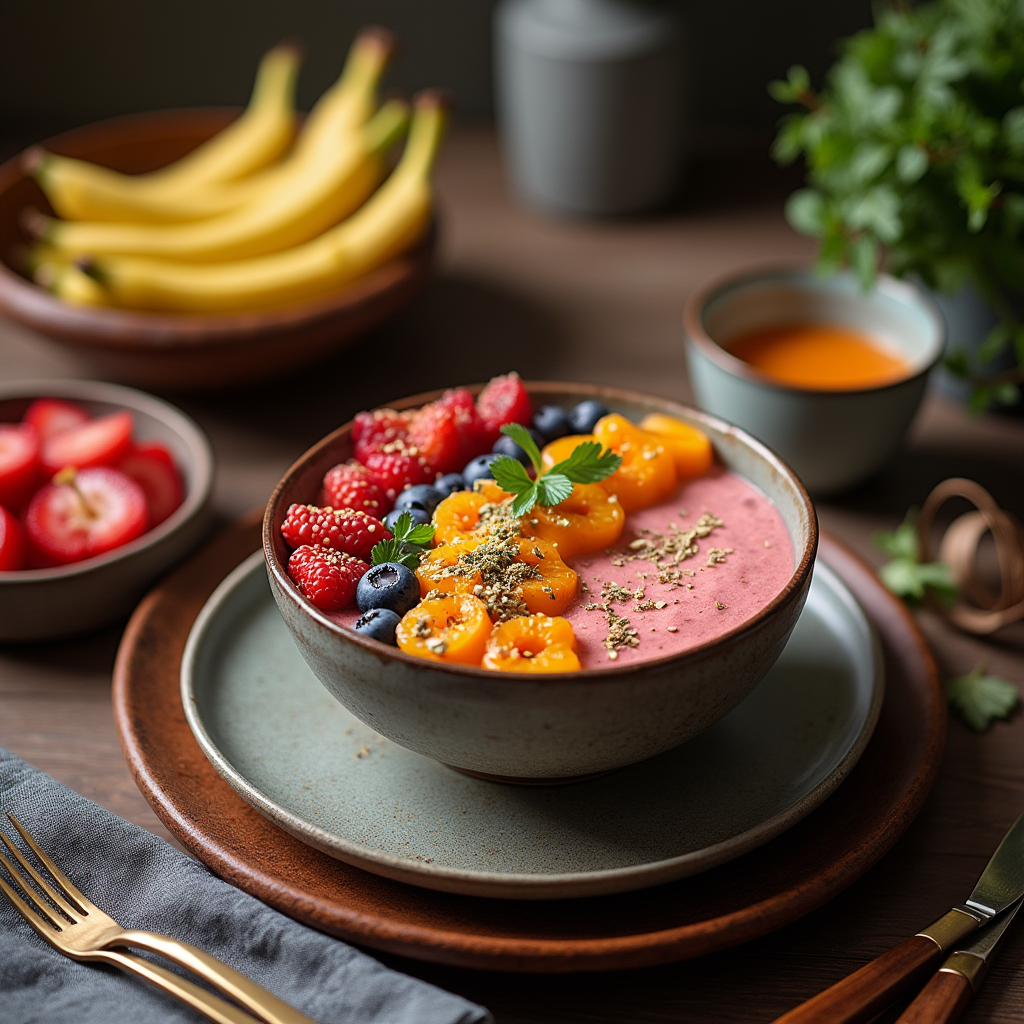Introduction to Healthy Breakfasts
A healthy breakfast is essential for starting your day with the right energy and focus. Choosing healthy breakfast ideas can fuel your body, improve metabolism, and support overall well-being. Whether you’re looking for quick healthy breakfast options or a nutritious breakfast recipe, it’s important to make breakfast a priority. From balanced breakfast recipes to easy healthy breakfast ideas, starting your day with the right foods can help keep you energized and focused throughout the morning.
Benefits of a Healthy Breakfast

Eating a balanced breakfast can have profound effects on both your physical and mental well-being. Here are some key benefits:
1. Energy Boost
After hours of sleep, your body has essentially been in a fasting state. A healthy breakfast replenishes your energy stores, providing the fuel you need to kickstart your day. Foods rich in carbohydrates, proteins, and healthy fats supply your body with the energy it needs for various activities, whether you’re working out, tackling your to-do list, or simply going about your daily routine. This energy boost helps you feel more alert, less fatigued, and ready to face the challenges ahead.
2. Metabolism Support
Breakfast helps jumpstart your metabolism. Eating in the morning stimulates thermogenesis, which increases the number of calories your body burns throughout the day. Skipping breakfast can slow down metabolism, leading to energy slumps and unnecessary cravings later on. A balanced meal in the morning provides the nutrients your body needs for sustained energy levels, keeping your metabolism active and functioning optimally.
3. Improved Cognitive Function
A well-rounded breakfast is key for brain health. By providing essential nutrients, particularly those high in fiber, vitamins, and healthy fats, you can improve cognitive function such as concentration, memory, and mood. Studies have shown that people who eat breakfast regularly perform better on tasks requiring attention and focus. This is because the brain needs glucose, which comes from carbohydrates, to function at its best.
Common Breakfast Mistakes to Avoid
While breakfast is essential, not all breakfast choices are created equal. Here are some common mistakes people make when choosing breakfast, and why you should avoid them:
1. Skipping Breakfast
One of the most common breakfast mistakes is skipping the meal altogether. Many people think that skipping breakfast can help them reduce calories, but this often backfires. Skipping breakfast can lead to overeating later in the day, as it increases hunger and cravings for unhealthy snacks. Additionally, it can negatively affect metabolism and energy levels, making it harder to stay productive throughout the day.
2. Choosing Sugary Breakfast Options
Many breakfast foods, such as sugary cereals, pastries, and flavored yogurts, can be loaded with sugar and empty calories. These options might taste good in the moment but offer little nutritional value. Consuming high-sugar breakfasts can cause a spike in blood sugar levels, followed by a crash that leaves you feeling sluggish and hungry again shortly after. To avoid this, opt for whole grains, protein-rich foods, and healthy fats to keep your blood sugar levels stable and your energy levels consistent throughout the day.
3. Overloading on Processed Foods
Many processed breakfast foods, such as pre-packaged muffins, breakfast bars, and instant oatmeal, are high in unhealthy fats, sugars, and preservatives. These processed foods often lack the necessary nutrients for a balanced breakfast and can contribute to weight gain and poor health over time. Instead, choose whole foods like fruits, vegetables, eggs, whole grains, and healthy fats for a more nourishing start to the day.
Key Components of a Healthy Breakfast
A healthy breakfast is more than just a quick bite in the morning—it’s an opportunity to fuel your body with the essential nutrients it needs to kickstart your day. The key to a balanced breakfast lies in combining different macronutrients and micronutrients that work together to provide sustained energy, promote overall health, and support cognitive and physical functions. Let’s break down the essential elements of a healthy breakfast.
Protein
Protein is a critical component of any balanced breakfast. It plays a key role in providing sustained energy throughout the day, promoting muscle repair and growth, and increasing feelings of fullness. Including protein-rich foods in your breakfast can help prevent overeating later in the day by reducing hunger and cravings. Protein also helps stabilize blood sugar levels, preventing the energy crashes that can come from consuming sugary foods.
Good sources of protein include:
- Eggs – A versatile and complete source of protein.
- Greek yogurt – Packed with protein and probiotics.
- Nuts and seeds – Great sources of plant-based protein and healthy fats.
- Tofu or tempeh – Excellent vegetarian and vegan options.
- Lean meats or poultry – Ideal for a higher-protein, savory breakfast.

Healthy Fats
Healthy fats are essential for brain function, energy storage, and long-lasting fullness. Fats are also crucial for the absorption of fat-soluble vitamins (A, D, E, and K) and play a vital role in hormone regulation. Including healthy fats in your breakfast can help you stay satisfied for longer periods and prevent mid-morning cravings.
Good sources of healthy fats include:
- Avocados – Rich in monounsaturated fats, which support heart health.
- Nuts and seeds – Full of omega-3 fatty acids and fiber, both of which benefit brain health.
- Olive oil – Great for drizzling on salads or mixing into savory breakfast dishes.
- Chia seeds – High in omega-3s, fiber, and protein, making them perfect for smoothies or oats.
Complex Carbohydrates
Carbohydrates are the body’s primary source of energy, but not all carbs are created equal. Complex carbohydrates, found in whole grains, legumes, and fibrous vegetables, provide steady energy and help regulate blood sugar levels. These foods are digested slowly, which means they release energy gradually, keeping you fuller for longer and preventing energy spikes and crashes.
Good sources of complex carbohydrates include:
- Whole grains (oats, quinoa, barley, brown rice) – Packed with fiber and nutrients.
- Sweet potatoes – High in fiber, vitamins, and minerals.
- Legumes (beans, lentils, chickpeas) – Excellent for adding fiber and protein.
- Whole grain bread – A healthy base for breakfast sandwiches.
Fruits and Vegetables
Fresh fruits and vegetables are rich in vitamins, minerals, antioxidants, and fiber. They help support immune function, improve digestion, and fight oxidative stress in the body. Including a variety of colorful produce in your breakfast adds essential nutrients that may be lacking from other food groups. Aim for a variety of fruits and vegetables to ensure you’re getting a wide range of health benefits.
Good sources of fruits and vegetables include:
- Berries (blueberries, strawberries, raspberries) – Packed with antioxidants that support brain health.
- Spinach and kale – Rich in vitamins A, C, and K, as well as iron and fiber.
- Bananas – Provide potassium and natural sugars for a quick energy boost.
- Tomatoes – Full of vitamin C and antioxidants like lycopene, which is good for heart health.
- Apples and pears – High in fiber to aid digestion and keep you feeling full.
Quick and Easy Healthy Breakfast Ideas
For busy mornings, a healthy breakfast doesn’t have to mean hours of prep. There are plenty of simple, nutritious options that are quick to prepare and still provide you with the essential nutrients to start your day off right. Here are some easy breakfast ideas that are both delicious and nourishing.
Overnight Oats
Overnight oats are a perfect “set-it-and-forget-it” breakfast. They require minimal effort, and you can prepare them the night before so they’re ready to grab and go in the morning. The basic idea is to combine rolled oats with a liquid (like almond milk, yogurt, or regular milk) and let them soak overnight in the fridge. The oats absorb the liquid, creating a creamy, porridge-like texture.
How to prepare overnight oats:
- Ingredients:
- 1/2 cup rolled oats
- 1/2 cup almond milk (or any milk of your choice)
- 1 tablespoon chia seeds
- 1 teaspoon honey or maple syrup (optional)
- Toppings: fresh berries, nuts, seeds, or nut butter
- Instructions:
- In a jar or container, combine the oats, almond milk, chia seeds, and sweetener (if desired).
- Stir everything together, cover, and place it in the fridge overnight.
- In the morning, top with your favorite toppings like fresh berries, chopped nuts, or a dollop of almond butter.
Overnight oats can be customized with various flavors. You can add cocoa powder, cinnamon, or vanilla for extra flavor, or switch up the fruit and toppings to keep it exciting.
Smoothie Bowls

Smoothie bowls are a refreshing, healthy, and customizable breakfast option. They combine the goodness of smoothies with the texture of a bowl, allowing you to add toppings that will make the meal more satisfying and delicious.
Tips for Making Breakfast Healthier
A healthy breakfast sets the tone for your day. With a few simple changes, you can improve the nutrition and balance of your morning meal.
Limit Added Sugar
Many breakfast foods contain hidden sugars, which can lead to weight gain and health issues. To reduce sugar, choose unsweetened yogurt, use fresh fruit for sweetness, and avoid processed breakfast bars.
Choose Whole Grains
Whole grains, like oats, quinoa, and brown rice, are rich in fiber and nutrients, which help digestion and keep you full longer. They also help stabilize blood sugar and reduce the risk of chronic diseases.
Portion Control
Control your portions to avoid overeating, even with healthy foods. Use smaller plates, measure servings, and pay attention to hunger cues to help manage your calorie intake.
Add Fiber-Rich Ingredients
Fiber aids digestion and keeps you satisfied. Add chia seeds, flax seeds, vegetables, and whole fruits to your breakfast for extra fiber and nutrients.
Stay Hydrated
Drinking water or herbal tea in the morning helps rehydrate your body and boosts energy. Start your day with water, and include water-rich foods like fruits or smoothies in your breakfast.
Frequently Asked Questions (FAQs)
Answers to common questions about healthy breakfast ideas and options.
What’s the Best Protein for Breakfast?
There are many excellent protein sources for breakfast. Eggs are a versatile and affordable choice, providing high-quality protein. Greek yogurt offers a good mix of protein and probiotics, while tofu and plant-based options like tempeh and legumes are great for those following a vegetarian or vegan diet.
Can I Have a Sweet Breakfast and Still Be Healthy?
Yes, you can enjoy a sweet breakfast while keeping it healthy! To make options like pancakes or oatmeal healthier, use whole-grain flour, reduce sugar, and add toppings like fruit, nuts, or seeds. You can also swap sugary syrups for natural sweeteners like maple syrup or honey in moderation.
How Can I Make Breakfast More Filling?
To make your breakfast more filling, include a balance of fiber, protein, and healthy fats. For example, add chia seeds or flax seeds to oatmeal, include avocado on toast, or pair eggs with vegetables. These ingredients will help keep you full longer and provide sustained energy.
What Are Some Quick, Healthy Breakfast Options?
If you’re short on time, there are still many nutritious breakfast ideas. Overnight oats, smoothie bowls, Greek yogurt parfaits, and avocado toast are all quick to prepare and provide a good balance of nutrients. These meals can be made ahead of time or assembled in just a few minutes.
Are Smoothies Really Healthy for Breakfast?
Smoothies can be a healthy breakfast option if made with the right ingredients. They provide a good source of vitamins and minerals, but be mindful of the sugar content. Use whole fruits, add vegetables like spinach or kale, and include protein-rich ingredients like Greek yogurt or plant-based protein powder. Avoid adding too much juice or sugary sweeteners to keep them balanced.
Conclusion: The Importance of a Healthy Breakfast
Starting your day with a balanced breakfast is essential for maintaining energy, improving cognitive function, and setting a positive tone for the rest of the day. It fuels your body, jump-starts your metabolism, and can even improve your mood. Whether it’s packed with protein, healthy fats, complex carbohydrates, or fruits and vegetables, a well-rounded breakfast provides everything you need to tackle your tasks efficiently.
Incorporating a nutritious breakfast into your routine doesn’t have to be time-consuming. Options like overnight oats, smoothie bowls, or Greek yogurt parfaits are both quick and nourishing, giving you the fuel you need to stay energized throughout the morning. For more meal ideas and tips on healthy eating, check out these resources:
By consistently choosing healthy options, you are investing in your long-term well-being. Make breakfast a priority, and you will enjoy a more productive and healthier lifestyle.


4 thoughts on “Healthy Breakfast Ideas for a Nutritious Start to Your Day”